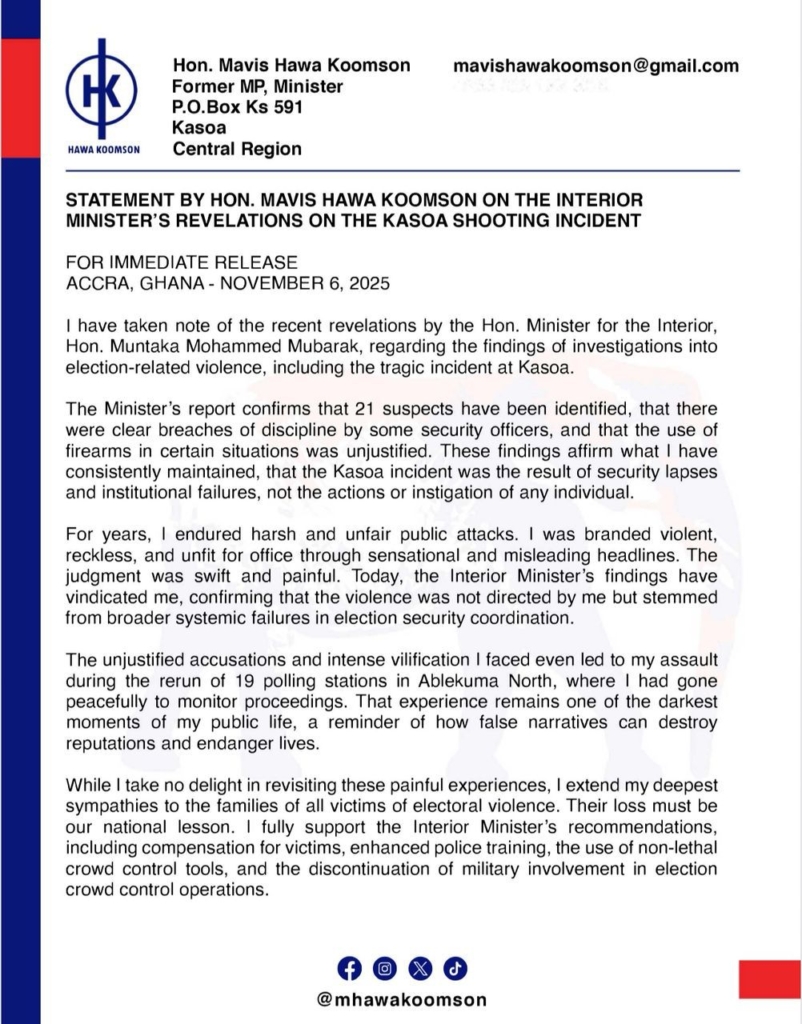
Former Minister and MP for Awutu Senya East, Mavis Hawa Koomson, says she feels vindicated following the Interior Minister’s revelations on the Kasoa shooting incident, which identified security lapses and disciplinary breaches as the cause of the violence, not the actions of any individual.
In a statement issued on Thursday, November 6, 2025, Mrs Koomson said the report by the Minister for the Interior, Hon. Muntaka Mohammed Mubarak, confirms that “the Kasoa incident was the result of security lapses and institutional failures, not the actions or instigation of any individual.”
She said the findings affirm her long-standing position that she was unfairly targeted and vilified over the incident. “For years, I endured harsh and unfair public attacks. I was branded violent, reckless, and unfit for office through sensational and misleading headlines. Today, the Interior Minister’s findings have vindicated me,” she stated.

The former minister recounted that the incident and its aftermath left deep scars, including an assault she suffered during the rerun of 19 polling stations in Ablekuma North, where she had gone to monitor proceedings. She described the experience as “one of the darkest moments” of her public life, adding that it was a reminder of how “false narratives can destroy reputations and endanger lives.”
Mrs Koomson also expressed her sympathies to families affected by electoral violence and endorsed the Interior Minister’s recommendations to prevent future incidents. She urged full implementation of reforms, including “compensation for victims, enhanced police training, use of non-lethal crowd control tools, and the discontinuation of military involvement in election crowd control operations.”
The Kasoa shooting incident, which occurred during the 2020 election period, attracted national attention after reports of gunfire near a polling centre led to widespread condemnation and calls for accountability.
The Interior Minister’s report is the first official document to comprehensively attribute responsibility to institutional failures rather than individual political actors.